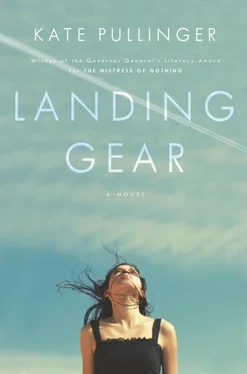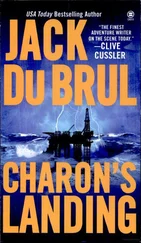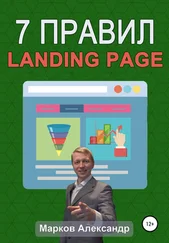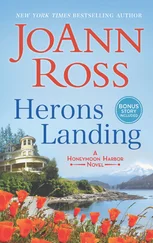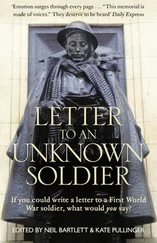“I love my country,” he said. “It is dear to me. The mountain valley where I grew up is very beautiful. Our lives were hard, but our lives were good as well, at least they were before, when I was a child. I would have been happy to have stayed there, to have taken care of my sister, to have married.”
“But instead you are here. Why?”
Again, that same look.
“Tell me what it is like where you come from. I’ve never been to Pakistan. Where did you grow up?”
“My family grew red onions in the Swat Valley.”
“Red onions?” Emily said in a tone she hoped was encouraging.
“When you think about Pakistan, all you think about is disaster and terrorism, the American raid on Bin Laden who we were either too stupid or too corrupt to catch ourselves, blasphemy trials and forced marriages, floods and earthquakes, religious murders, our politicians gunned down by their own bodyguards.” Yacub stopped.
“That’s right,” said Emily. “We don’t know any better.”
“Or the so-called Pakistanis that you have here in Britain, with their mashed-up slang and their curries and their gold chains and their low-slung jeans.”
Emily looked out from behind the camera and nodded.
“When I think of Pakistan, I think of red onions, the piles of red onions getting bigger and bigger as we worked on the harvest, the smell of them, the stains from their skins and flesh on my hands. And the tall trees in the wide valley where my family laboured, the mountains towering over us, keeping us safe, and my father, and my mother, and my sister.”
He looked at the window again. “I sent her a new phone. Raheela. We talk online. Our uncle is working on getting her married. I’ll go home for the wedding.”
He looked up as though there was something to see other than the grey London sky. “The seasons progressed in a regular rhythm in our village, and in the spring you’ve never seen a sharper contrast between the green of the fields and the blue of the sky. Our village was so small that when I was a child, there was only one phone, but no one could afford to use it, so mostly it sat there, forgotten. We didn’t need phones. My sister used to run down the road ahead of me—she was always faster than me, even after I grew taller than her…” He stood up abruptly, the unit for the wireless mic falling out of his pocket, pulling the mic off his lapel. He walked rapidly across the room to the window.
Emily could see he was doing his best not to cry. She wondered if the mic would still pick up what he was saying.
“I do get homesick,” he said, “even though I’m happy here.”
Emily nodded.
“I miss my sister.”
“I miss my father,” said Emily. “He’s been dead for four and a half years but I still think of him every day. You would have liked him. He’d have liked you.”
Yacub, pulling himself together, turned toward her. “My father would have said you were a harlot infidel beyond all imagining.”
“Inshallah,” Emily replied.
Emily and Jack got on well, mainly because of the effort that Emily had made to put him at ease. She never presumed with Jack—she never presumed with any of them—but it wasn’t long before she could see that Jack did presume with her, and this made her happy. He presumed that she’d have time to see him, he presumed she was interested in his life, he presumed that their relationship didn’t require a lot of effort and energy and thought. He was eighteen, ten years younger than Emily. He had finished school and was working for a year before heading off to university, but he maintained a lucky child’s assumption that he was loved. He considered Emily to be part of his family, and this made Emily happy as well, regardless of the tensions and stresses in her dealings with other members of the family, regardless of the fact that they were not related. With Jack, things were easy.
She set up the room carefully, as carefully as she did for Yacub, though this time she left things much as they were normally, stuff piled on the side table—bound books, a couple of print magazines, her tablet—and her laptop on the floor. It was a small flat, and she was not fond of clutter; most of her stuff was digitized anyway. She’d bought two packets of those sticky Belgian waffle biscuits she knew he liked, and a big carton of smoothie, and a couple of beers for later.
He was at the door. She put on her lipstick before she let him in.
He was reluctant to take his coat off, keeping his hood up over his head, and he wouldn’t sit down. “What do you want me to talk about? Is this about the adoption thing?”
“No, not at all.” She hadn’t expected him to be defensive. “I want to hear what you think.”
“About what?”
“Your family.”
“My family? Oh jesus. That’s boring.”
“I don’t think so.”
“You’ve never lived with us.”
Sometimes when she was over for supper and she watched them—Harriet, Michael, Jack, Yacub—and how they got along, despite or because of everything, she did wonder what it would be like to live there. She could occupy one of the many rooms; she could leave her shoes by the front door. She wouldn’t be alone. No, she liked being alone. Well, most of the time.
Now Jack looked ashamed at what he’d said. Emily couldn’t help but smile at him. The thing about Jack was that he was sweet, he was sweet-natured and kind, and she saw that now he was worried he had offended her or upset her in some way by pointing out the obvious. She got up and went into the kitchen, leaving him to stew for a few moments. She returned with the biscuits and the smoothie. When food was on offer, Jack was a pushover—mainly because he was always hungry. He’d do anything for some biscuits and a smoothie.
“Have a snack while I sort out the lighting,” she said.
He nodded and adjusted the tray she’d presented him with. “You want one?”
“You go ahead.”
While she was fiddling with the lights, Jack relaxed a little. She placed her chair behind the camera and without telling him started to record.
He cracked his knuckles, one at a time.
He stretched out his long legs and rolled his head to ease the tension in his neck. Not for the first time Emily thought, it can’t be easy being so tall. Nothing in the world quite fits. Clothes. Chairs. Doorways. Other people.
“Ruby and I broke up,” he said. “You’re not filming yet, are you?”
“No.”
“I don’t know why we even tried going out—hopeless.”
“Why did you do it, then?”
He gave her a look. “It’s Ruby. She’ll always be—I don’t know—it’s like she is Essence of Girl to me. She’ll always be. Despite everything.”
“I’m sad to hear it didn’t work out. I like Ruby.”
“Everyone likes Ruby. But the girl has—Well, she has troubles.”
“How long had you been seeing her?”
“We weren’t really seeing each other. We went out on a date. That was it. But I had high hopes. Ridiculously fucking high hopes. As always. Why do I have such high hopes all the time? What is it with me?”
“You are one of life’s optimists, Jack. You always have been, you always will be.”
He shook his head. “So uncool.”
“Okay,” she said, pretending to put the camera on. “Tell me about that night at the river. Tell me what happened.”
“That was a long time ago.”
“Two years,” she said, “not so long, really.”
Jack lowered his head. She was worried for a moment that he wasn’t going to talk. But then he brought his head back up and looked toward the window. The light was perfect. “Yacub flew. The man’s a genie. Or he’s a cat with nine lives, most of which he’s already used.” He stopped.
Читать дальше
